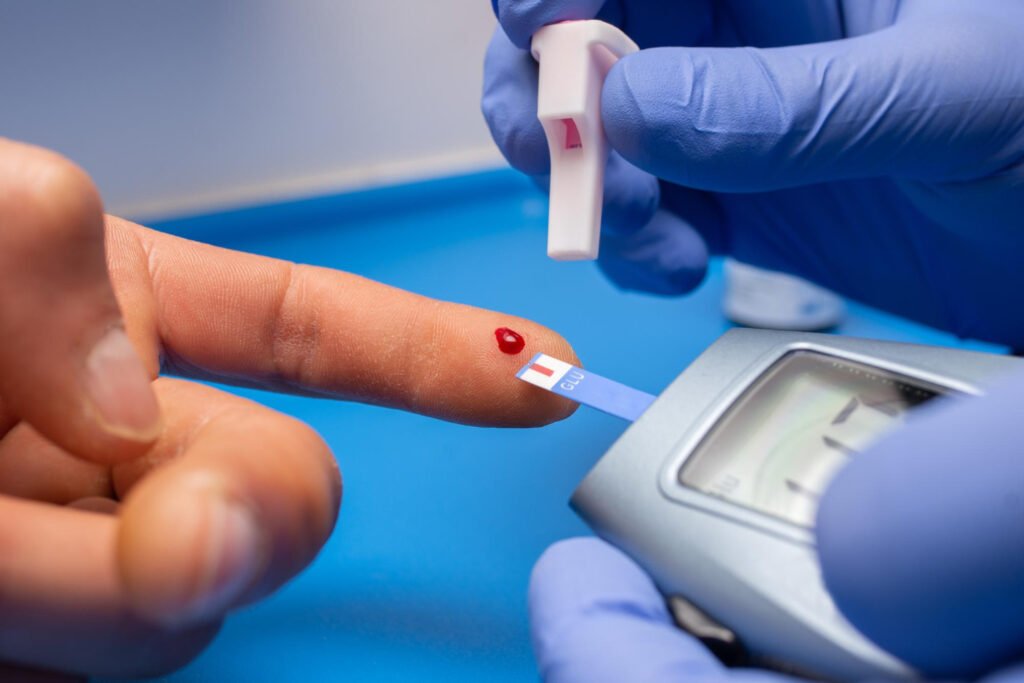Maintaining balanced blood sugar levels is essential for good health, energy, and overall well-being. Whether you are managing diabetes or just trying to stay healthy, understanding how to control blood sugar naturally is crucial. High or low blood sugar can cause fatigue, mood swings, and long-term health problems, but with a few daily changes, you can take charge of your health.
In this article, you’ll discover what affects blood sugar, practical lifestyle tips to keep it stable, foods that help balance glucose levels, and a simple daily routine that supports healthy blood sugar management.
What Is Blood Sugar?

Blood sugar, also known as blood glucose, is the main source of energy for your body’s cells. It comes from the food you eat, especially carbohydrates like rice, bread, and fruits. Your body uses insulin — a hormone produced by the pancreas — to move glucose from your bloodstream into your cells.
When this process doesn’t work properly, blood sugar levels can rise too high (hyperglycemia) or fall too low (hypoglycemia), leading to various health issues.
Why Managing Blood Sugar Is Important
Maintaining healthy blood sugar levels helps your body function smoothly. Stable glucose levels support energy, focus, and mood. Uncontrolled levels can cause:
-
Fatigue and weakness
-
Frequent thirst and urination
-
Weight gain or unexplained weight loss
-
Slow wound healing
-
Nerve and heart problems over time
By managing blood sugar naturally, you can prevent serious health complications and improve your overall lifestyle.
Common Causes of High Blood Sugar
-
Unhealthy Eating Habits: Consuming too many sugary and processed foods can spike glucose levels.
-
Lack of Physical Activity: Regular exercise helps your body use insulin more effectively.
-
Stress: High stress increases cortisol, which raises blood sugar.
-
Poor Sleep: Sleep deprivation affects hormone balance and increases sugar levels.
-
Skipping Meals: Irregular eating patterns can cause sudden highs and lows in blood sugar.
Signs Your Blood Sugar May Be Out of Balance
-
Constant tiredness or irritability
-
Frequent hunger or thirst
-
Blurry vision
-
Difficulty concentrating
-
Tingling or numbness in hands and feet
Recognizing these signs early helps you take control before it becomes a serious problem.
Tips to Naturally Manage Blood Sugar
1. Eat Balanced Meals
Include a mix of carbohydrates, proteins, and healthy fats in each meal. Focus on:
-
Whole grains (oats, brown rice, quinoa)
-
Lean proteins (fish, eggs, lentils)
-
Healthy fats (avocado, nuts, olive oil)
-
Fresh vegetables and fiber-rich foods
Fiber slows the absorption of sugar into the bloodstream, preventing sudden spikes.
2. Control Portion Sizes
Overeating, even healthy foods, can raise blood sugar. Use smaller plates, eat slowly, and listen to your hunger cues.
3. Exercise Regularly
Physical activity helps your body use insulin efficiently. Aim for:
-
30 minutes of brisk walking daily
-
Light strength training 2–3 times per week
-
Yoga or stretching to reduce stress
4. Stay Hydrated
Drinking water helps flush excess glucose through urine. Aim for 8–10 glasses per day and avoid sugary drinks.
5. Get Quality Sleep
Sleep affects hormone regulation and glucose metabolism. Maintain a consistent bedtime routine and aim for 7–9 hours of rest each night.
6. Manage Stress
Chronic stress increases blood sugar levels. Practice meditation, deep breathing, or journaling to calm your mind and body.
7. Avoid Sugary Beverages
Replace sodas and energy drinks with herbal teas, infused water, or lemon water to maintain stable glucose levels.
Best Foods to Support Healthy Blood Sugar
-
Leafy Greens: Spinach, kale, and broccoli are low in carbs and rich in nutrients.
-
Berries: Packed with antioxidants and fiber, berries help regulate glucose absorption.
-
Cinnamon: May improve insulin sensitivity and lower fasting blood sugar.
-
Nuts and Seeds: Almonds, chia seeds, and flaxseeds provide healthy fats and fiber.
-
Whole Grains: Brown rice, oats, and barley have a lower glycemic index than white rice or bread.
-
Fatty Fish: Salmon and sardines support heart and metabolic health.
Daily Routine to Support Blood Sugar Health
|
Time
|
Activity
|
Benefits
|
|---|---|---|
|
Morning
|
Drink a glass of warm water + light walk
|
Activates metabolism
|
|
Breakfast
|
High-fiber meal (oats, eggs, fruits)
|
Maintains steady energy
|
|
Midday
|
Take short breaks, stretch
|
Prevents insulin resistance
|
|
Lunch
|
Balanced meal with protein and vegetables
|
Keeps blood sugar stable
|
|
Evening
|
Brisk walk or yoga
|
Improves insulin function
|
|
Night
|
Light dinner + relaxation
|
Prepares body for restful sleep
|
Consistency in this daily routine supports balanced energy levels and prevents glucose fluctuations.
Frequently Asked Questions (FAQs)
1. Can blood sugar fluctuate during the day? Yes, it naturally rises after meals and drops as insulin works, but large swings can indicate an imbalance.
2. How can I quickly lower blood sugar levels naturally? Stay hydrated, go for a short walk, and eat fiber-rich foods to stabilize glucose levels.
3. Does stress really affect blood sugar? Yes, stress hormones like cortisol and adrenaline raise blood sugar levels.
4. How often should I check my blood sugar? If you have diabetes or prediabetes, monitor as advised by your doctor. For healthy individuals, routine checks every few months can help.
5. Can exercise replace medication? Exercise improves insulin sensitivity, but never stop medication without medical advice. Combine both for the best results.
Conclusion
Maintaining balanced blood sugar is key to long-term health, energy, and focus. Small lifestyle changes such as eating balanced meals, exercising regularly, sleeping well, and managing stress can make a huge difference. Include more whole foods, reduce sugar intake, and stay active every day to prevent spikes and crashes.
“If you are looking for a natural way to improve your health and lifestyle, [GlucoTrust Bites] could be the perfect choice. Start your journey today.”







